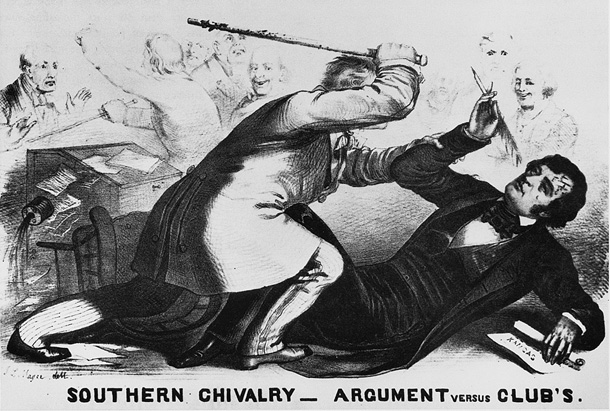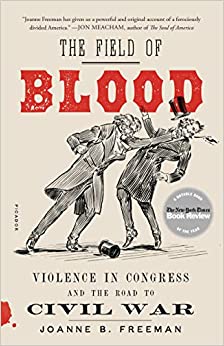“Fools say that they learn by experience. I prefer to profit by others experience.” — Otto von Bismarck
We study history to learn about the past, to learn about the mistakes others have made so we can avoid them.
For example, our Congress today is about as dysfunctional as it has ever been. Relations have deteriorated to the point where wishes of violence against some members have at least been hinted at by fellow members. Sounds grim, doesn’t it?

Credit: New York Public Library
Yet a trip through history will reveal an even grimmer time, a time when violence among our congressional representatives actually did happen. In fact, there were over 70 violent incidents between congressmen in the three decades before the Civil War. During this period, congressmen were known to carry weapons to work, and constituents actually contributed firearms to their representatives. The most extreme example was May 22, 1856, when Representative Preston Brooks beat Senator Charles Sumner into unconsciousness with a cane.

From the Library of Congress
But perhaps an even worse incident was in 1838 when representative Jonathan Cilley was murdered by fellow congressman William Graves in a duel neither wanted. And as to violence in state legislatures, let’s not even go there.
As you might have guessed, the main political divide during this period was slavery, the issue that would cause a full-blown civil war in 1861. It should come as no surprise that such a conflict would begin in the halls of Congress.

These events are covered in detail in The Field of Blood: Violence in Congress and the Road to Civil War by Joanne B. Freeman, a professor of history at Yale. From a review by Brian Matthew Jordan: “Freeman deftly revealed how late 18th century politicians—in absence of ossified traditions or organized political parties—depended on a code of honor to supply the “grammar” of political combat” (https://www.nyjournalofbooks.com/book-review/field-blood). Freeman’s work has a 4.5 star rating on Amazon.com with 250 reviews.
Hopefully, we will learn from this sordid past and resolve our differences in more civilized ways. At least now there’s an anti-dueling law (passed in 1839).
Also see “Violence in Congress Before the Civil War: From Canings and Stabbings to Murder” by Becky Little (https://www.history.com/news/charles-sumner-caning-cilley-duel-congressional-violence).
